Bath Chamber Opera’s production of
Malcolm Hill’s cross-dressing comedy-opera :
Women on Top
based on
Aristophanes’ Assembly Women – Sex and Socialism in Ancient Athens
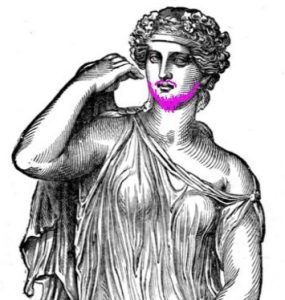
The second (of four) scene was previewed in Bath URC on Friday 16th May at 6.30, and the whole work was previewed in Thomas a Becket, Box, two days later at 7.30.
The first official performance was at 7.30 on Wednesday 11th February 2015 at the Rondo Theatre, Bath, preceded by How the Viking got his Horns – a curtain-raiser comedy-opera by Malcolm Hill – with members of the Bath Chandos Singers forming a “Greek Chorus”.
CAST of Women on Top
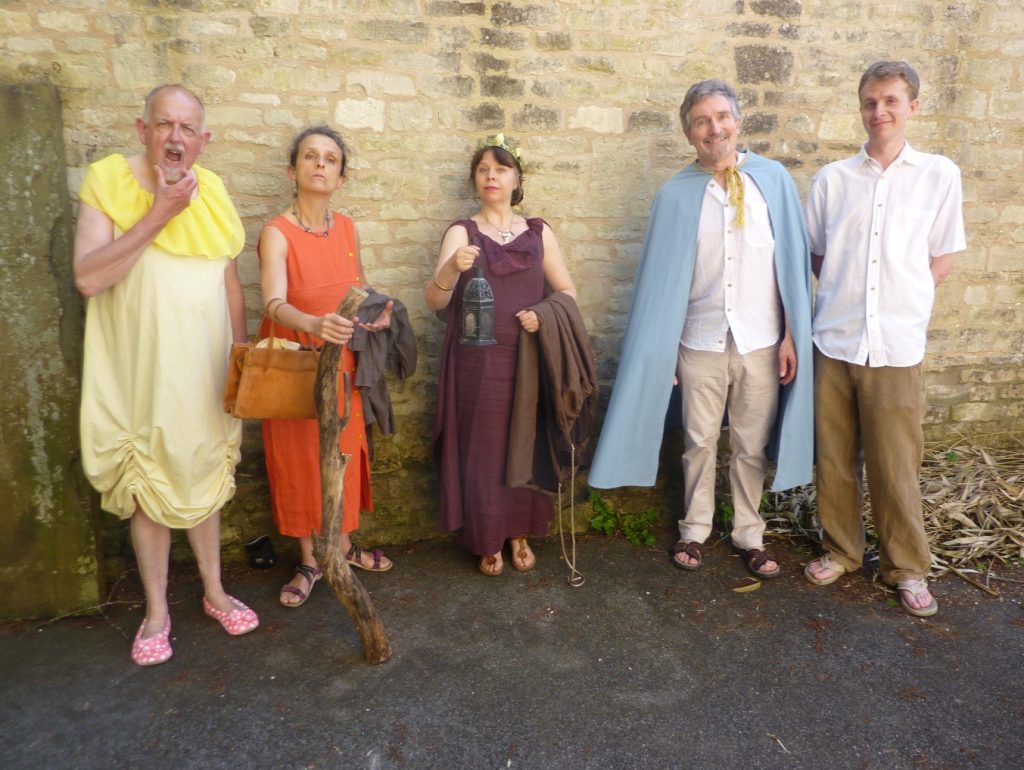
CAST from Left to Right:
PAUL FELDWICK (Bass Baritone) as Blepyrus, Praxagora’s husband
JULIA RUSHWORTH (Soprano) as a follower of Praxagora
JANE HUNT (Soprano) as Praxagora, a campaigning matron SIMON CALDWELL (Baritone) as Chremes, a friend of Blepyrus
ROB JACK (Tenor) as a neighbour of Blepyrus
SYNOPSIS
Athens, 391 BC, has won a major battle against Sparta. Athens’ favourite comedy-writer, Aristophanes, writes the play Ecclesiazusae (The Assembly Women, or Women on Top).
Scene 1: Just before dawn Praxagora summons the women of Athens to a meeting. Her motives are not made clear. The women plan to enter the Assembly, disguised as men, in order to ‘have their say’ in the government of Athens. The women discuss what they will propose, with various degrees of ability, before Praxagora outlines five reasons that women are more dependable and therefore would be better at taking charge of the state.
Scene 2: Praxagora’s husband, Blepyrus, wakes to find his clothes and his wife gone. He needs to relieve his painful constipation and is forced to dress in his wife’s clothes. A passing neighbour has also mislaid his cloak, staff and wife. Blepyrus meets his friend Chremes who relates that unrecognised pale-faced men have taken over the Assembly and voted women as Athens’ leaders. But this will mean that now it will be the women that have to work from day-break while the men can be the ones who gossip. Praxagora returns home and is falsely accused of visiting her male lover. In the ensuing row it becomes clear that she is now President of the Assembly.
Scene 3: All private property is now to be shared and all needs to be communally provided. Chremes bids farewell to his precious possessions before taking them to the Forum. A cantankerous Athenian citizen is reluctant to give up all his worldly goods and decides to wait and see if everyone else does. A “shrill female herald” orders all to draw the lot which will assign where each shall sup at the awaiting feast. Chremes takes his goods to the Forum.
Scene 4: An elderly prostitute summons her lovers.A young man is looking for a dalliance with his favourite young tart, but hears that the Assembly has decreed that before he can woo a young woman he must first do the same with an elderly one. Three ancient sluts battle over whom he must favour. Insults lead to a general free-for-all. Eventually the young man frees himself from the battle and is joined by Praxagora’s maid who calls everyone to a communal feast.
LIBRETTO
Adolphus von Velsen’s 1883 Greek version with Latin footnotes was the first text accessed.
R.Smith’s verse translation of 1833 wasused as the basis for the final libretto by Malcolm Hill; most of the verse was turned into prose but a few verse passages were “borrowed” towards the end of the work.
Later translations were found to be either too verbose or still in copyrightand thus discarded.
The Greek “rule-of-three” for characters’ names was upheld in the libretto.
In order to maintain Aristophanes’ inclusion of current events, a few ‘Shakespearean anachronisms’ were purposely incorporated (e.g. Chremes’ household goods).
GALLERY
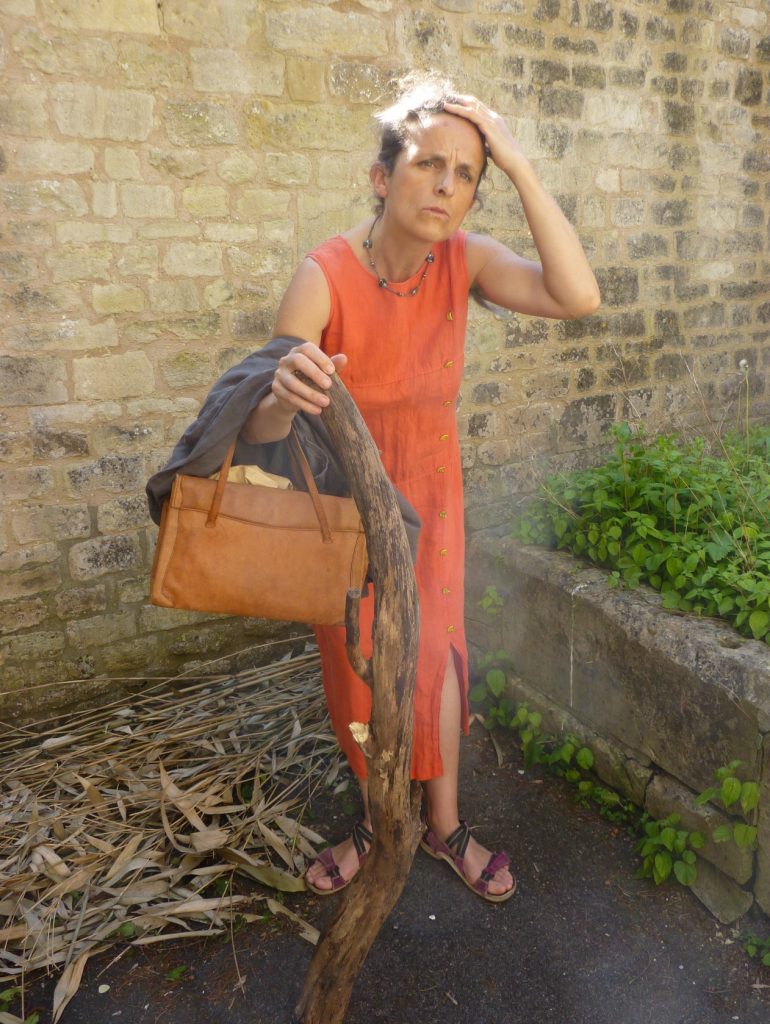
In Scene One, an Athenian woman who is not too bright comes to Praxagora’s early-morning meeting (part sung by Julia Rushworth).
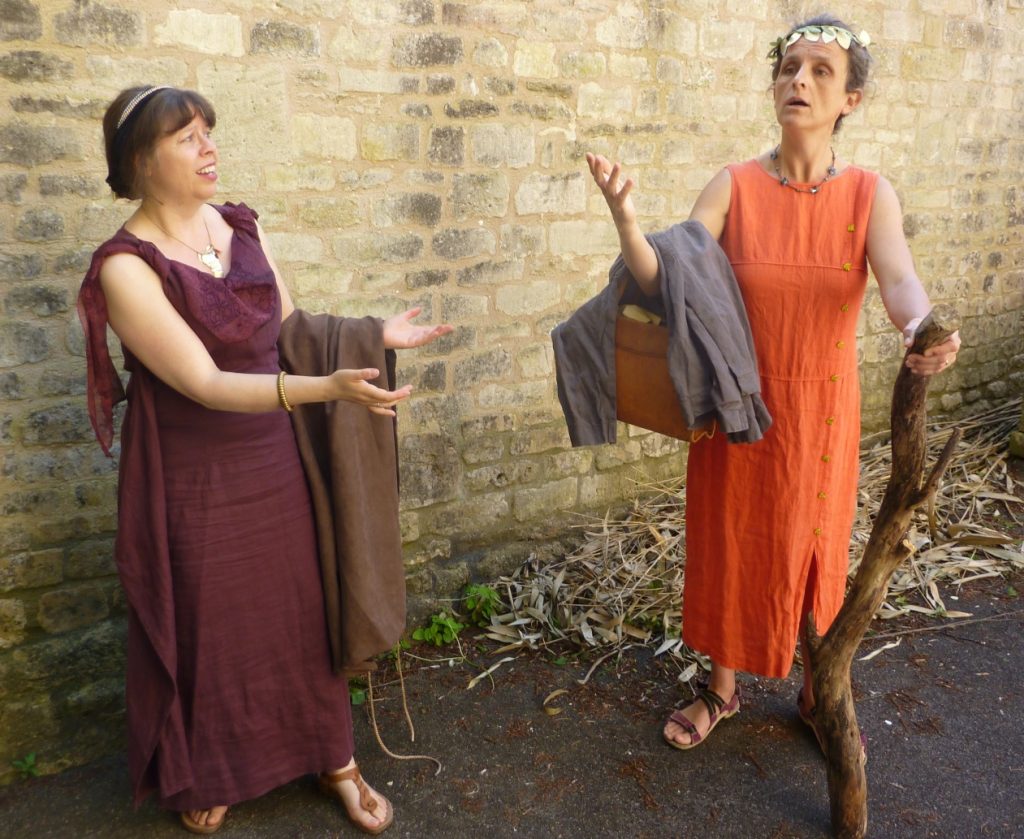
Praxagora (sung by Jane Hunt) berates her follower’s stupidity.
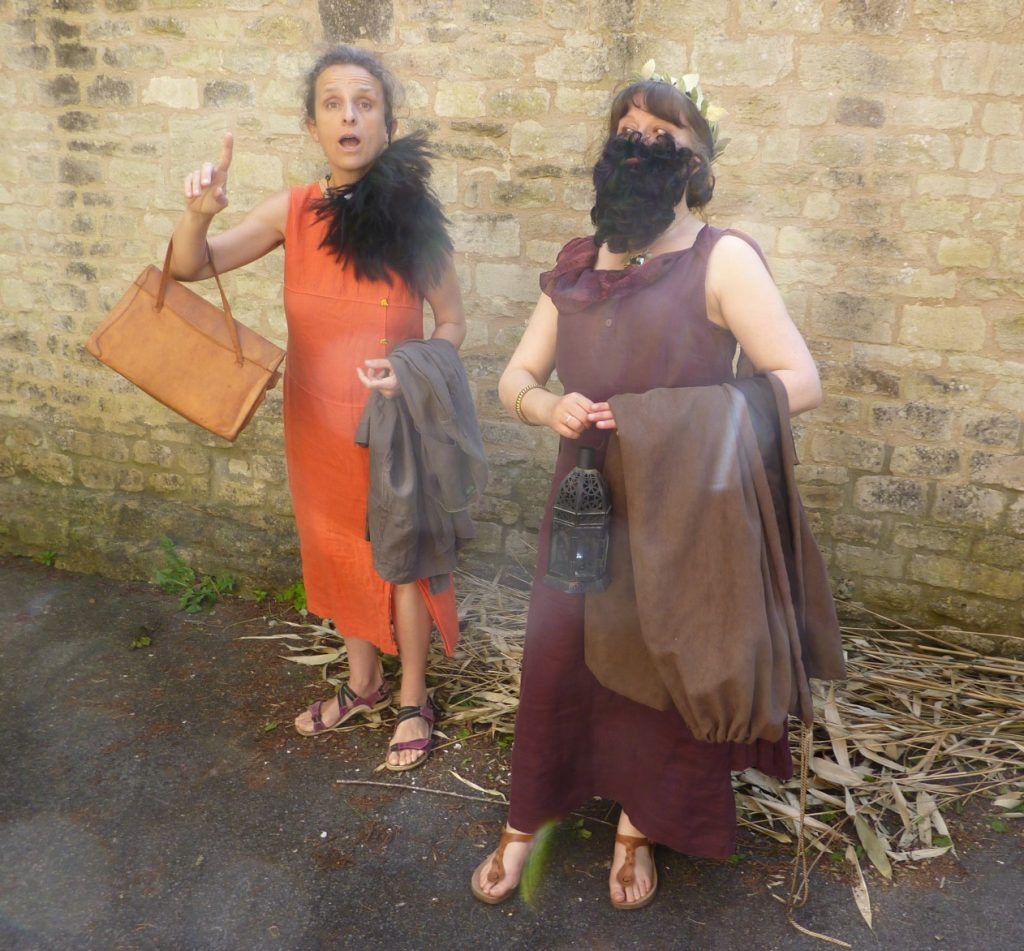
Beards are put on to imitate men before setting off for the Assembly.
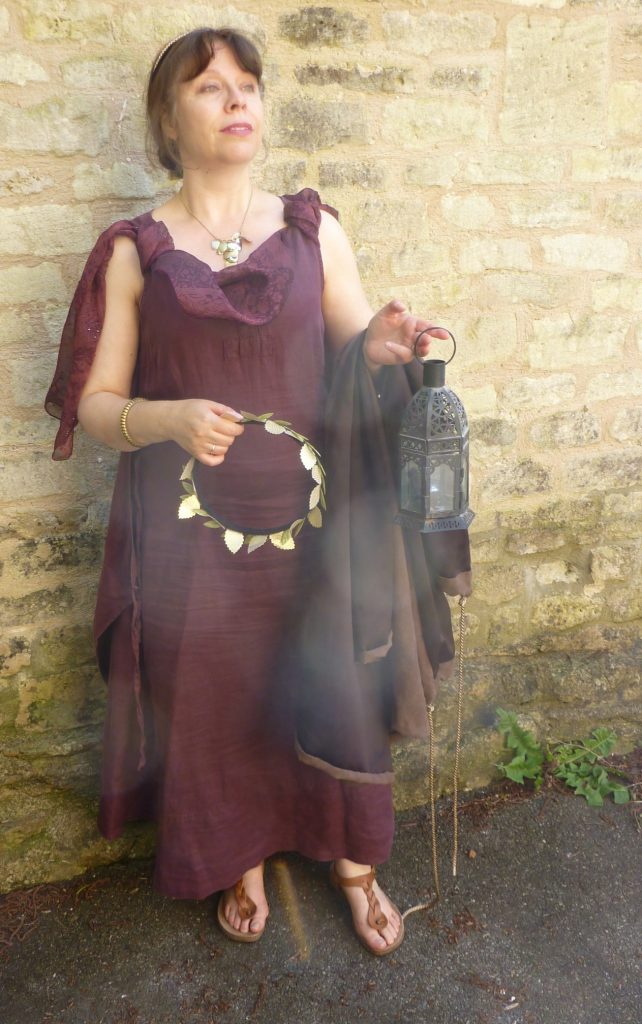
Praxagora has become the Lady President of the Assembly.
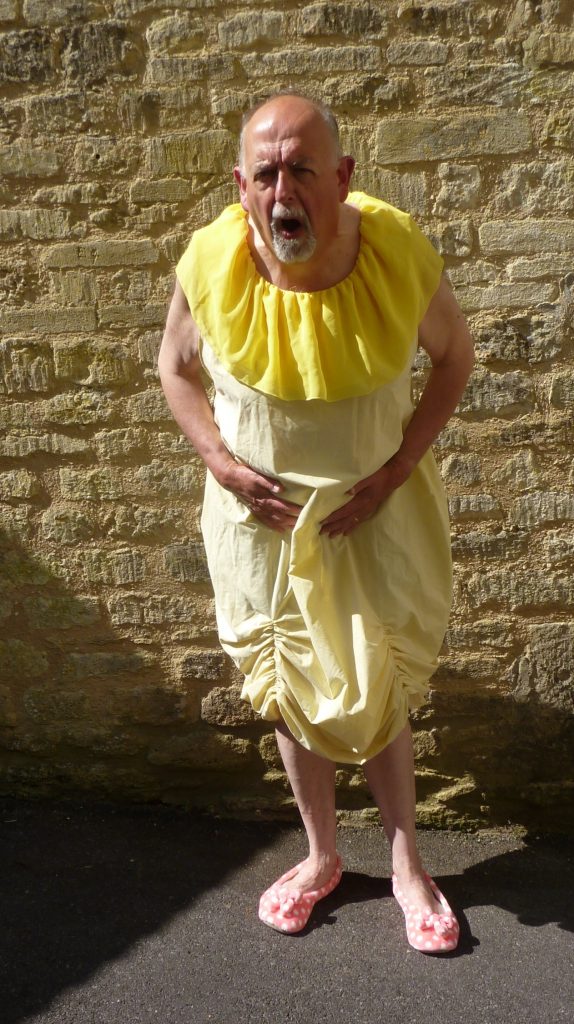
At the beginning of Scene Two, Praxagora’s husband, Blepyrus (sung by Paul Feldwick) is in pain.
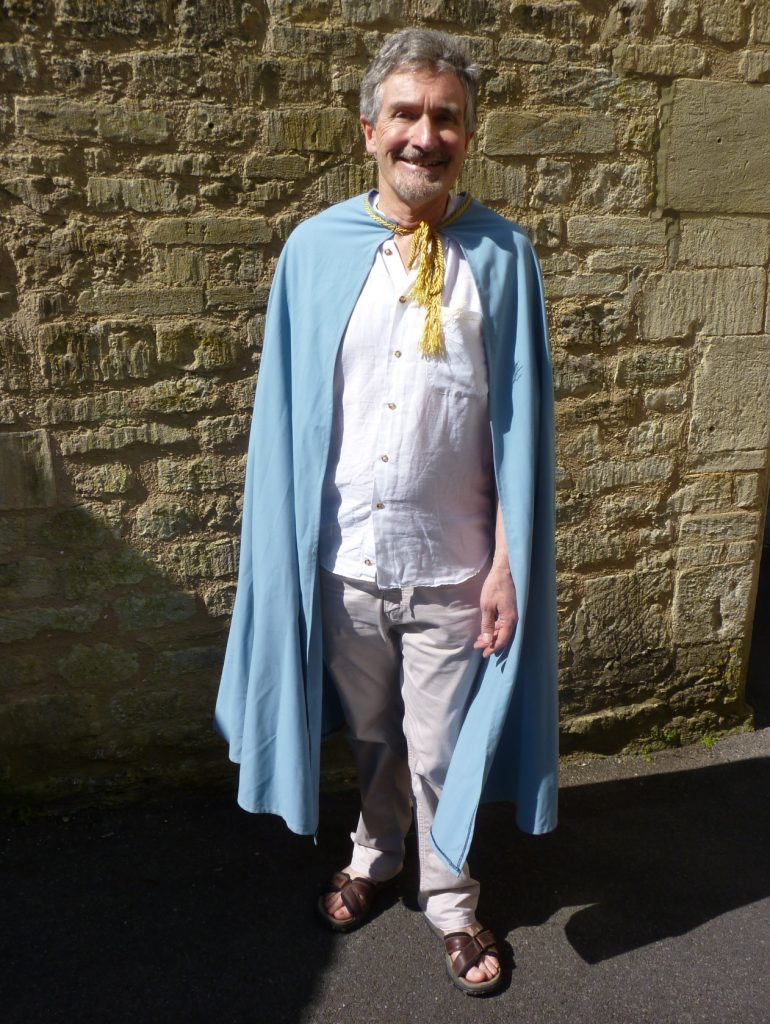
Chremes (sung by Simon Caldwell) visits his friend Blepyrus. Chremes is a happy chap who always obeys [a precursor of Barney Rubble?]

Chremes makes his farewell to his favourite possessions before they are shared with the whole community.

At the beginning of the final scene, an old prostitute puts up a lamp to summon potential clients.
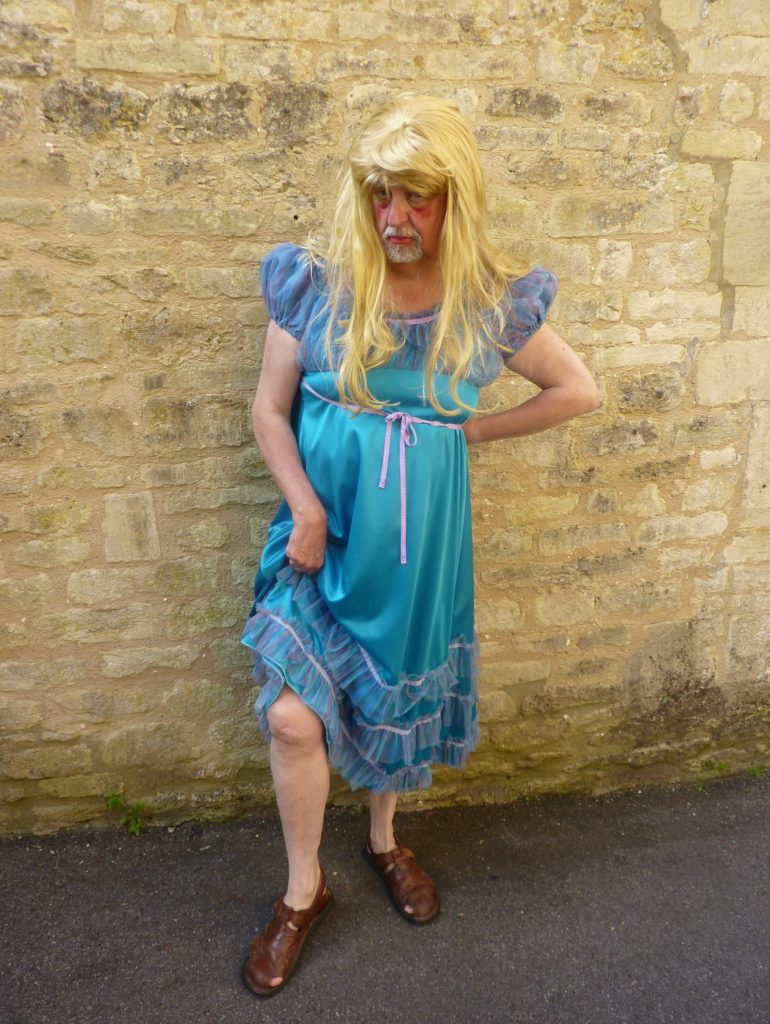
First Old Woman-of-the-night (sung by Paul Feldwick).

Young Slut (sung by Julia Rushworth), whose attributes are valued by the drunken Young Chap.
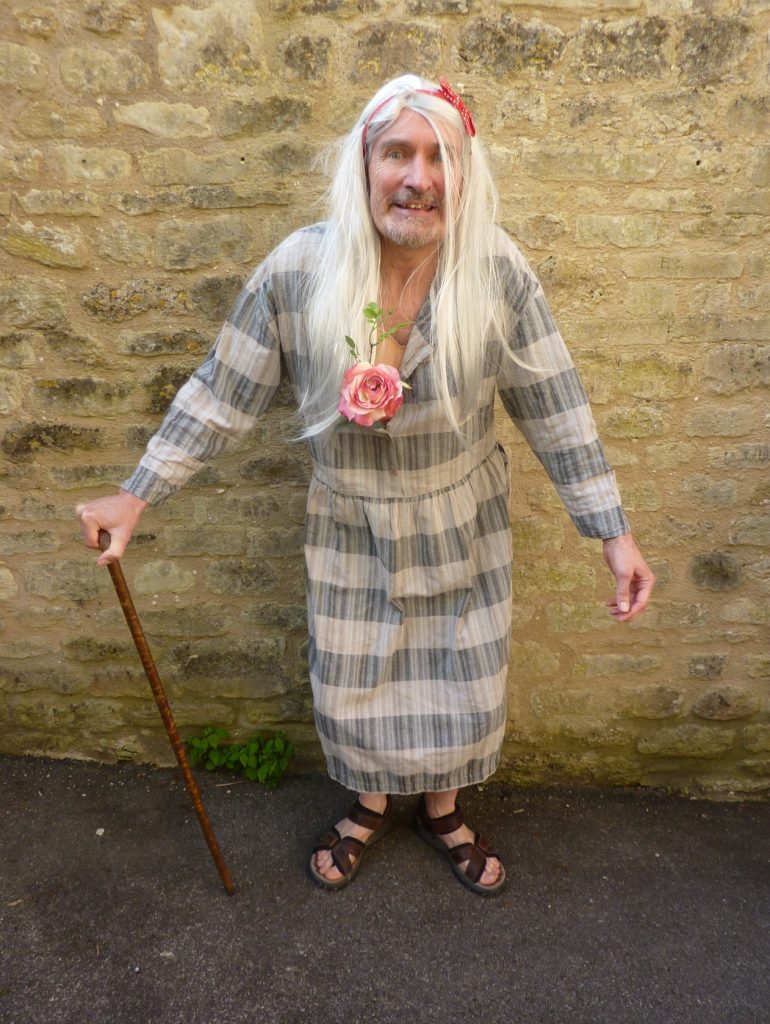
Second Old Woman-of-the-night (uglier than the First Old Woman), sung by Simon Caldwell.
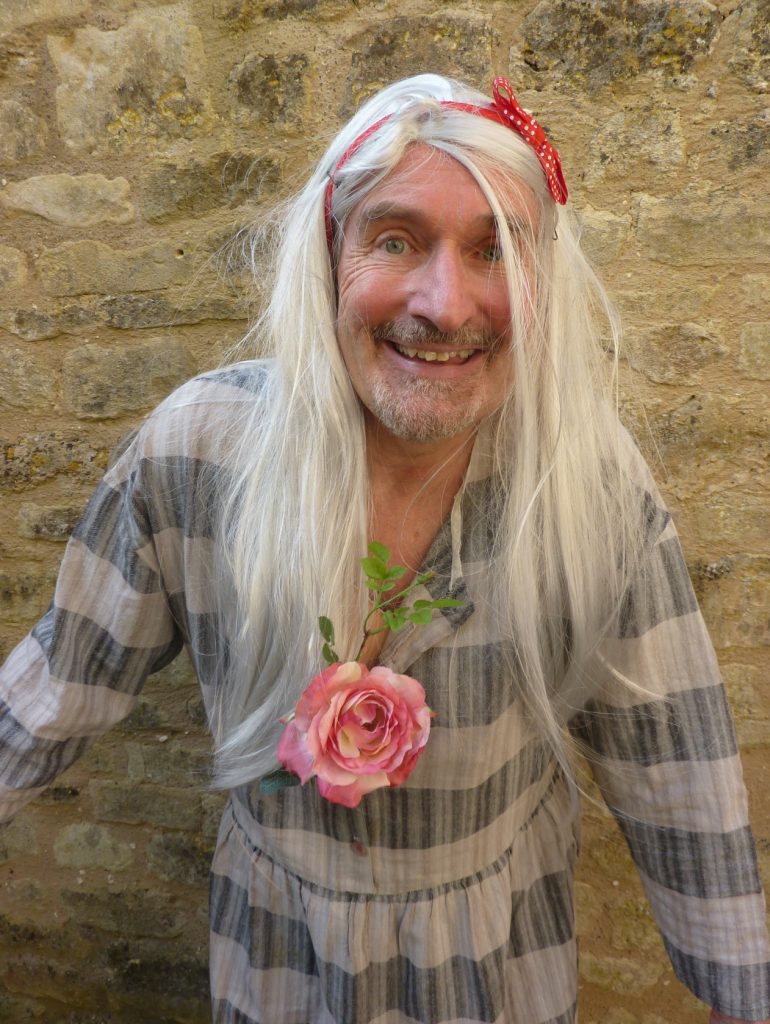
Second Old Woman gets closer to the Chap.
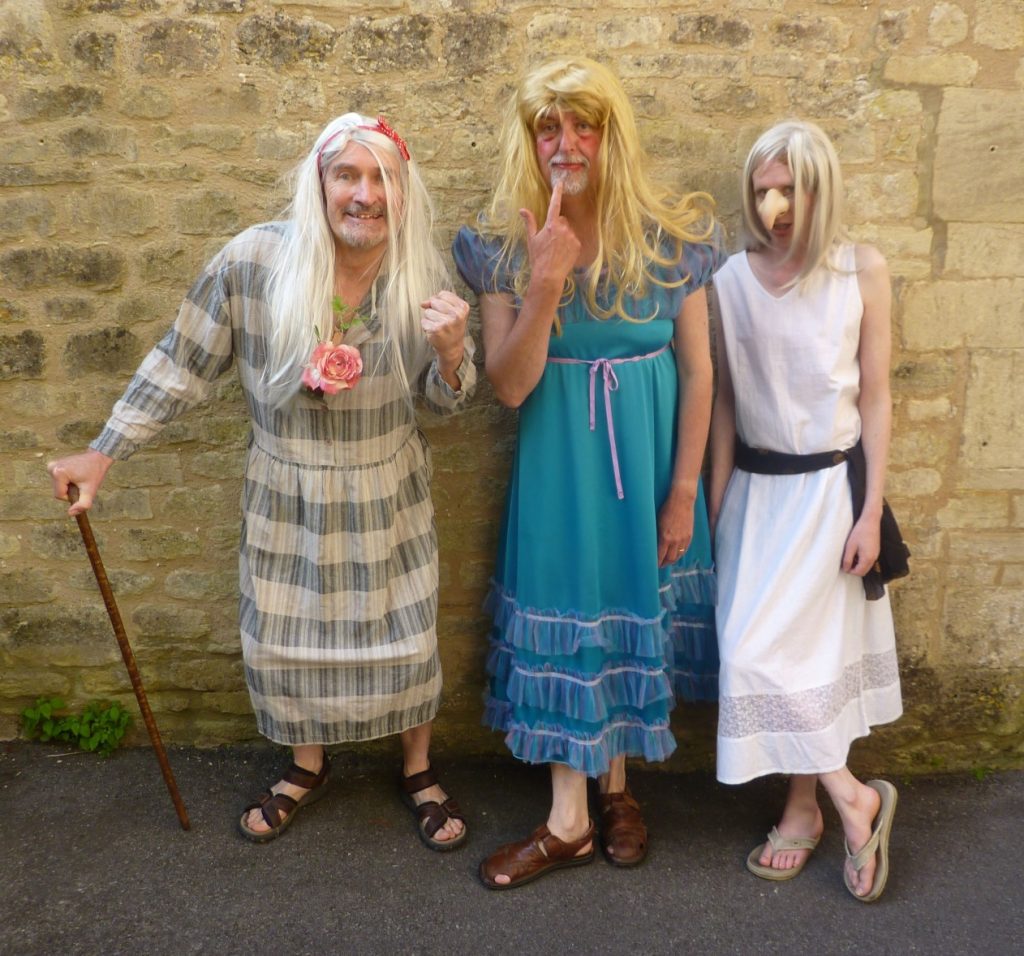
The two Old Women are joined by a third (sung by Rob Jack).
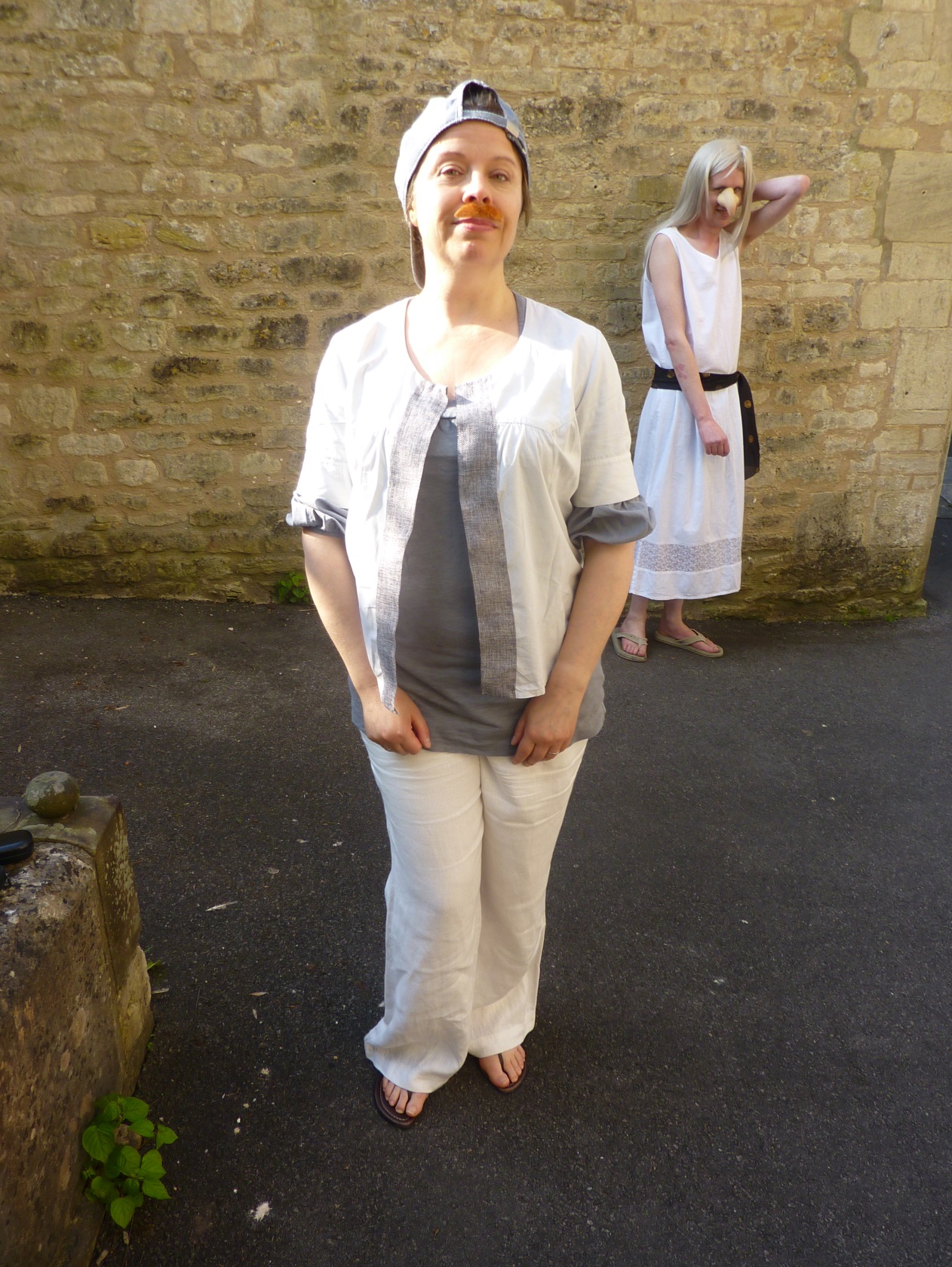
Young Chap (sung by Jane Hunt) is fancied by Third Old Woman.

Everyone leaves to go for supper.
